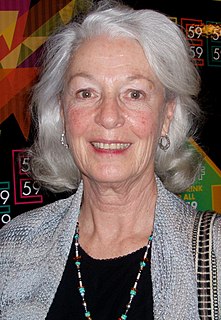A Quote by Jessica Valenti
Lately, I'm thinking a lot about, in parenting and in my writing, how to create a language about sexism in a way that is attractive and approachable to this age group. I can teach my daughter about not talking to strangers but I can't teach her about how to succeed in a sexist world or even how to exist as a body in a sexist world. I want to begin by asking girls what they want and why they want it? Interrogating that. If this is the sex life you want, what makes you think you want that? I imagine the only way to authentically get at sexuality is by asking those questions.
Quote Topics
About
Age
Age Group
Asking
Attractive
Begin
Body
Create
Daughter
Even
Exist
Get
Group
Her
How
Imagine
Language
Lately
Life
Lot
Makes
My Daughter
Not Talking
Only
Parenting
Questions
Sex
Sexism
Sexist
Sexuality
Strangers
Succeed
Talking
Talking To Strangers
Teach
Think
Thinking
Those
Want
Way
Why
World
Writing
Related Quotes
When we teach a child to sing or play the flute, we teach her how to listen. When we teach her to draw, we teach her to see. When we teach a child to dance, we teach him about his body and about space, and when he acts on a stage, he learns about character and motivation. When we teach a child design, we reveal the geometry of the world. When we teach children about the folk and traditional arts and the great masterpieces of the world, we teach them to celebrate their roots and find their own place in history.
Millennials want to find meaning in their work, and they want to make a difference. They want to be listened to. They want you to understand that they fuse life and work. They want to have a say about how they do their work. They want to be rewarded. They want to be recognized. They want a good relationship with their boss. They want to learn. But most of all, they want to succeed. They want to have fun!
People don't want children to know what they need to know. They want their kids to know what they ought to need to know. If you're a teacher you're in a constant battle with mildly deluded adults who think the world will get better if you imagine it is better. You want to teach about sex? Fine, but only when they're old enough to do it. You want to talk politics? Sure, but nothing modern. Religion? So long as you don't actually think about it. Otherwise some furious mob will come to your house and burn you for a witch.
When you talk about what you want and why you want it, there's usually less resistance within you than when you talk about what you want and how you're going to get it. When you pose questions you don't have answers for, like how, where, when, who, it sets up a contradictory vibration that slows everything down.
We don't think much about how our love stories will affect the world, but they do. Children learn what's worth living for and what's worth dying for by the stories they watch us live. I want to teach our children how to get scary close, and more, how to be brave. I want to teach them that love is worth what it costs.
A lot of my books deal with very controversial issues that most people often don't want to talk about, issues that, in my country, are more likely to get put under the carpet than get discussed. And when you talk about moral conundrums, about shades of gray, what you're doing is asking the people who want the world to be black and white to realize instead that maybe it's all right if it isn't. I know you'll learn something picking up my books, but my goal as a writer is not to teach you but to make you ask more questions.
Lately I've been thinking about who I want to love, and how I want to love, and why I want to love the way I want to love, and what I need to learn to love that way, and how I need to become to become the kind of love I want to be. And when I break it all down, when I whittle it into a single breath, it essentially comes out like this: before I die, I want to be somebody's favorite hiding place, the place they can put everything they need to survive, every secret, every solitude, every nervous prayer, and be absolutely certain I will keep it safe. I will keep it safe.
I think everyone is always asking themselves, How is my work meaningful, how is my life meaningful? As I get older, I feel like who I am as a person and a citizen is more important than who I am in my work. But I do think it reframed slightly for me, how much I have to care about a project in order to want to do it. Sometimes, obviously, you have a take a job for money. But I think I'm quicker now when I get a script that's, say, borderline misogynist, I'm not going to go in for it. I'm thinking more about what I'm putting into the world.






































